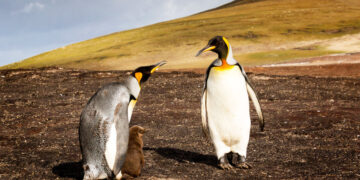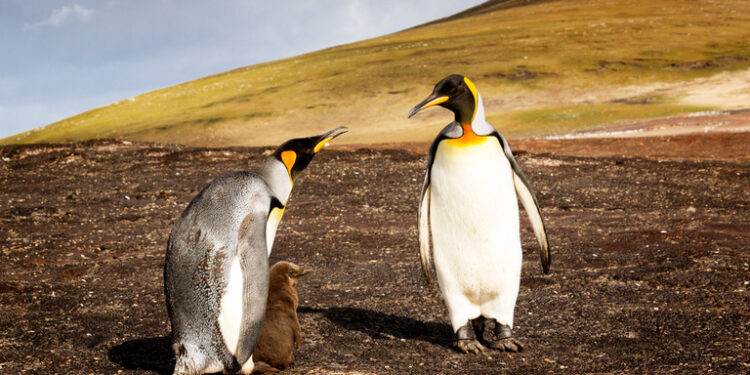The African penguin, once thriving in the millions along southern Africa’s coastline, is now on the brink of extinction, with fewer than 9,900 breeding pairs left in the wild.
Experts warn the species could disappear within a decade if urgent action is not taken.
The seabird’s rapid decline is being driven by overfishing of sardines and anchovies, its primary food sources, along with habitat loss and predation.
At Stony Point colony near Cape Town, conservationists are testing survival strategies such as artificial nests to shield penguins during breeding. “Artificial nests are used to lessen the environmental exposure to the penguins when they are breeding… to protect them from predators… and it also helps with breeding, and protecting their chicks and eggs,” explained Adrienne Johnson-Europa, a penguin monitor.
This year, a landmark court ruling forced the South African government to establish no-fishing zones around key colonies to ease food competition during breeding. Conservationists welcomed the move but warn it only partly addresses the problem.
“These closures are beneficial… but once juveniles fledge, they travel large distances and need to find food. Bearing in mind the juveniles are inexperienced and not very good hunters, the survival is less than 50%. And so, if there’s less food availability, you can only imagine how difficult that is,” said Nicky Stander, conservation manager at SANCCOB.
Experts stress that tougher fishing restrictions across the penguins’ range will be critical for their survival.
For now, conservationists hope the court-ordered protections will buy time to keep Africa’s only penguin species from vanishing forever.
The penguin is now confined to just a handful of breeding colonies in South Africa and Namibia. These countries are home to its last strongholds, including Boulders Beach and Robben Island near Cape Town, as well as Namibia’s Mercury Island. Populations elsewhere along Africa’s southern coast have collapsed.
Industrial fishing has pushed food sources further from breeding sites, leaving adult penguins struggling to feed themselves and their chicks. Habitat loss, climate change, and increased predation have further worsened survival chances.
Scientists also point out that penguins play a critical ecological role as indicators of ocean health. A collapse of their population could signal broader threats to Africa’s marine biodiversity, affecting fisheries and coastal communities that depend on them.
The African penguin is classified as endangered on the IUCN Red List, and conservationists fear that without stronger fishing restrictions and expanded marine protected areas, Africa could soon lose one of its most iconic seabirds forever.



































